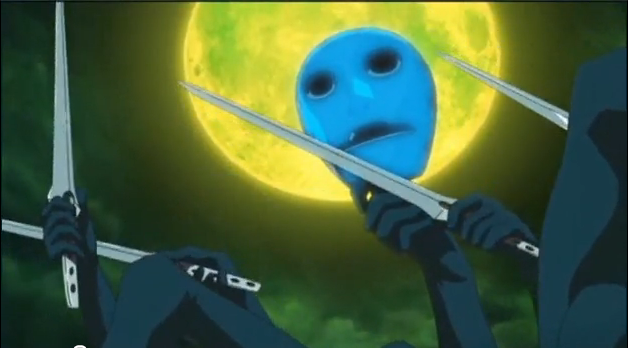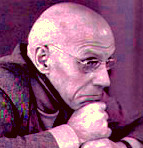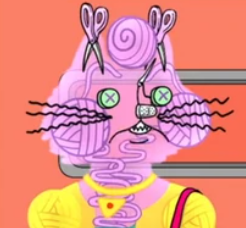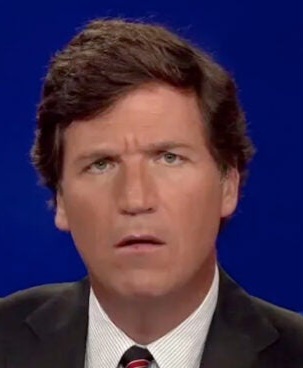As far as I could tell in the movie the rich people were depicted as decent parents if not a bit naive, while the poor family were backstabbing assholes who betrayed their fellow workers (the housekeeper and her husband) because of sheer malice. Not once does the film hint at the underlying economical system as the reason why the rich are rich and the poor are poor.
If you are a socialist, you will (correctly) identify capitalism as the reason for the misery of the poor people in the film, and the rich as part of the bourgeoisie who exploit them. But that isn’t any different than analysing an IRL crime through that lens, the film didn’t help you reach that conclusion, it just presented a scenario.
A chud could easily see the rich family as the honest entrepreneurs and the poor family as poor because of the negative behaviors they exhibited, and there is nothing in the film that would dispute that interpretation.
With the poor family getting punished for their deception, and the son resolving to make money to save his father at the end (presumably through more “honest” means), it even displays the “pull yourself by the bootstraps” belief.
The best case interpretation of the film I can make is that “the rich people should be more conscious of the poor’s struggles, and the poors should stay in their place or risk losing everything” which is pretty reactionary and not the class conscious film many people described it as. I guess you could see the ending as punishment for the class betrayal but I think that’s a stretch.
Am I overzealous in policing the politics of the media I consume to the point of misinterpreting things or finding an even vaguely leftist film that hard?
i mean offering socialism as a solution in the movie is literally against south korean censorship laws
Damn, I didn’t know that. I don’t really expect imperial core media to be socialist, but a scene of a poor person blaming the rich or a scene showing a rich person being shit to the workers wouldn’t be that hard no?
i mean i came off the movie viewing the rich family very negatively, like the rich dad literally
spoiler
abandons a person to die because of his son had a faint
its not directly said but the message is very heavily implied
showing a rich person being shit to the workers wouldn’t be that hard no
the message of the film is saying that even if an individual member of the bourgeois is “nice” they by virtue of their position is an exploiter, being too heavy handed with it kinda fucks with that message
His son would die in 15 minutes or sth due to the seizure, the scenario wasn’t that black/white
That was said by his mother who was already shown to go to the worst case scenario, like the scene where her son’s art gets evaluated. The son wasn’t in any danger as it was a psychological response and not a life threatening condition. The mom might’ve believed there was legit danger, but in the context of the movie, the son would’ve been fine.
Yeah my bad, I often miss such behavior details
I think that’s by design actually. As the viewer, we’re led to believe the wealthy person who treats their problem like an emergency. It’s only through paying attention to the details that you can see how minor their problems are.
They were both affected by rain for example. The wealthy family complained a lot more about day camp being cancelled than the family who had to deal with flooding and displacement.
Parasite really highlights how the wealthy get sympathy by default.
a scene showing a rich person being shit to the workers wouldn’t be that hard no?
did you miss the part where they talk about the way poor people smell
Is that the worse thing your average bourgeoisie would do? It isn’t even in the top 50
See also in Squid Game where the DPRK ‘defector’ character is just silent when the question of which system is better is raised
It doesn’t mean an endorsement of the DPRK considering her dad was killed and she left due to poverty. But it’s pretty damning evidence that the creator thinks that capitalism is worse or as bad as whatever North Korea is supposed to be.

It does a lot more to lecture working class folks on solidarity than it does lecture the rich on the wealth inequality that fuels their servant-filled lifestyle but then again, you could literally beat them over the head with a rock and they wouldn’t get it (which literally does happen to Ki-woo).
I like the fact that to us it’s crystal clear why Mr Kim finally snaps at the disrespect his family is shown by Mr Park but the bourgeois audience sees nothing but the surface level of the movie and sees the Kim family as parasites. The naivety of the rich family is perfectly reflected in the people who see the movie and just don’t get why he stabs Park.
It does a lot more to lecture working class folks on solidarity That interpretation is legit imo, but in that case the film also does the usual mistake of diluting its themes for the sake of subtlety (literal CIA promoted art trend).
Most people are going to miss that if you don’t offer multiple examples of it during your work. If you just have the one poor family try to become rich by betraying their fellow poors and tricking some rich family and failing, someone could argue that they should have just become rich in a more honest way.
But if you also have another set of working class characters that succeeded by cooperating then you reinforce the notion that working class people will succeed united and fail when against one another. Maybe even mention that point explicitly. That’s just my opinion, but subtext is just cowardice when it comes to a work’s main theme
I’d say inserting a success story doesn’t really mix with the doomer tone of the movie which is just trying to depict how hard the odds are stacked against them because social mobility does not exist in South Korea. In the real world, no matter how cunning and smart the Kim family are they will never become equals with the idiots that are the Park family because society is not meritocratic in the slightest. The only real solution is replacing that society entirely but that’s a little too revolutionary to get made.
Yeah you are right. Maybe even a small victory like a successful strike or sth is too taboo there. I am just bored of nihilistic doomer media which serve more to demoralize than to inspire, but it can’t be helped
I’d recommend stuff like The Platform or Andor, definitely has the more hopeful vibes you’re looking for.
Thanks, will check them out
Most people are going to miss that if you don’t offer multiple examples of it during your work
Most people miss the point of many artwork. But that doesn’t mean I want or need an essay from the author explaining every reason for their decisions
But if you also have another set of working class characters that succeeded by cooperating then you reinforce the notion that working class people will succeed united and fail when against one another. Maybe even mention that point explicitly.
Yes. That’s Snowpiercer, Bong Joon-ho’s previous movie. Characters can easily keep their heads down and slave away on the train and maybe one day become part of the upper train carts. But many choose to violently resist even when presented with the opportunity to drop everything and join the upper trains. One critique I’ve seen from the movie is that the workers needed somebody from the upper class to assist their revolution. This may have been true during Marx and Lenin’s time when you needed to be well off to read and analyze a lot, but now everybody has phones and computers and libraries.
I think it’s a mistake to read the story as a straightforward allegory, but overall I think its politics are good. For better or worse, this is not a Socialist Realist movie, but rather one that is playing with complexity and ambiguity.
Not once does the film hint at the underlying economical system as the reason why the rich are rich and the poor are poor.
Actually it very much does, although some of the context is harder to parse if you’re not familiar with Korean society. The poor family ended up in their situation because the father dumped their savings in to a fad restaurant too late to cash in on the trend and got ruined. The brother, while intelligent, lacks the elite credentials his friend has, until his sister forges a diploma from Yonsei University (this is one of the universities you are desperate to get into if you want to stay on the elite track that leads to employment at a conglomerate like Samsung). There is a very narrow track to success in Korea and it’s a lot easier to walk if the way is greased by money and private tutors like the wealthy family has.
A chud could easily see the rich family as the honest entrepreneurs and the poor family as poor because of the negative behaviors they exhibited, and there is nothing in the film that would dispute that interpretation.
Chuds are famously bad at interpretation. But we here should be able to realize that the poor are rarely model victims. The rich family are able to be polite and nice because of their money. The poor family not only do what it takes to survive, but lacking class consciousness, are mostly concerned with becoming rich themselves. That’s realistic as hell in my experience. Upon finding out there’s someone even more exploited than themselves (the couple in the basement), they’re mostly concerned with maintaining their own upward trajectory and are willing to use violence to maintain it. You could read the basement couple as a metaphor for the third world if you were so inclined.
With the poor family getting punished for their deception, and the son resolving to make money to save his father at the end (presumably through more “honest” means), it even displays the “pull yourself by the bootstraps” belief.
I don’t think the text really supports this reading. The idea that the (now brain-damaged) son’s fantasy of becoming rich is a realistic one is laughable. If anything I think it’s critiquing a bootstraps mentality.
Finally, I want to touch on the movie’s critique of the way in which the Korean elite are colonized by America. The wealthy family (particularly the mother) constantly use English words to show their sophistication. Their son is obsessed with cowboys and Indians, and it’s the wealthy father’s insistence that the poor father wear the Native American headdress that triggers the violent denouement of the movie.
Thanks for the cultural context, I legit didn’t know any of that. The cultural colonization thing was actually one of the things I really liked in the movie. My negative view of the movie is probably due to personal taste tbh, I just don’t like doomer media and think they do more harm than good in the agitation sense. I also don’t really care about subjectivity that much (autism makes this worse probably)
The only part of Parasite I took issue with was the weird dreamlike ending. Hadn’t connected the dots that it was probably tongue in cheek as the son was brain damaged at that point.
A chud could easily see the rich family as the honest entrepreneurs and the poor family as poor because of the negative behaviors they exhibited, and there is nothing in the film that would dispute that interpretation.
That’s the whole point of the film. Socialism is not about moralism, nor is it about the people you like.
The film even went as far as overtly stating that the rich people can afford to appear “nice” and “kind” precisely because they can materially afford to do so, while the poor have to survive by any means necessary, even if it means cheating, stealing and robbing one another. These behaviors reflect their respective socio-economic upbringings that further divide the classes on a cultural level (“look at the dirty, rude poor people, unlike us affluent, upper middle class people who are cultured and civilized”).
Exploitation by the bourgeois class is an integral component baked into the capitalist system itself, and the class interests of the poor and the rich are fundamentally opposed to one another. It doesn’t matter whether the rich or the poor are decent people, what matters is that exploitation leads to inequality which in turn sustains the capitalist mode of production itself.
Systemic exploitation continues to happen even if all the rich people are decent and kind people who genuinely love their employees and servants and want to give them better pay/benefits. This is what socialism is trying to end.
With the poor family getting punished for their deception, and the son resolving to make money to save his father at the end (presumably through more “honest” means), it even displays the “pull yourself by the bootstraps” belief.
The film literally depicts the final sequence as an ultimately futile endeavor and nothing more than a dream that functions to sustain the son’s motivation to perpetuate his own role as a labor who generates surplus value for the system.
Is it really not clear enough from the film’s exposition? Do they really need to spell it all out? And here I thought the part where one of the protagonists overtly said that “rich people can afford to be nice, while we can’t” is already a bit too on the nose.
Is it really not clear enough from the film’s exposition?
I bet you it isn’t as clear as it should be, and having more parts such as this
rich people can afford to be nice, while we can’t
would probably make for less interesting art but relay the themes better which is pretty important imo
Just want to note that the director’s grandfather defected to the DPRK and worked there as a writer for decades heheh. My lib spouse is from South Korea and refers to Bong as a “red” and says that all the best Korean directors are communists. We actually just watched Parasite a few days ago and our kids were seriously disturbed by the depiction of poverty in the film. The working class dad in the film also physically resembles my FIL, except that he has had a withered leg his entire life due to getting polio as a child when his family was literally starving and way too poor to afford the vaccine (which had been developed several years earlier). He’s a petty lib landlord/business owner now though, always makes excuses for Park Chung-hee, hates the DPRK, abused the fuck out of his family. My spouse has so many fucked up stories about her childhood. At one point her dad actually dug a hole under their apartment (like in Parasite but much smaller) so they could rent out a room. At one point he also owned a bunch of slot machines and was apparently making $10,000/month before the government outlawed gambling everywhere in Korea except for like one casino an hour’s drive from Seoul.
I don’t think the film is lib. It’s mostly a movie about capitalist alienation and how everyone loses under capitalism no matter what we do. The moment of recognition and solidarity at the end between the working class dad and the underground dweller is pretty obvious to communists too. There’s an issue with left works of art not endorsing communism explicitly enough, but this is partly because corporate censors just won’t allow them to do this.
Another really great Korean movie about class is Attack The Gas Station, by the way. You can find the whole thing on YouTube.
Even in a generous interpretation it has the problem where it just chooses to portray a situation and leave it there, which is liberal.
Liberals love nothing more than to ritualistically acknowledge the situations and inequalities of the world as a form of confession, and then refuse to do anything about it.
To be fair, he already addressed what needed to be done in Snowpiercer, which is to kill the bourgeoisie and its collaborators and resist all of their temptations and not betray your fellow worker.
Bong Joon-Ho is a liberal, but yeah I think you’re wrong to say the film is reactionary.
I think a major thing you’re missing by wanting the rich people to be rude and the poor family to be polite is that these types of behaviours are typically engendered by certain class positions.
There are plenty of rich people who are polite, but despite this the rich characters are shown to be exploitative which is more meaningful. If you watch carefully they are assholes, they’re just polite about it.
I don’t know if you’ve ever personally been desperate for getting enough to survive, but that kind of mentality constantly experienced makes being polite much more challenging than it would be if you live at peace because all your material needs have been met.
And you’re right to focus on how the poor family acts when they are asked to show compassion or take a personal risk when they meet the destitute couple. This is important because it demonstrates how when the poor can be made so desperate to survive that can, and often does, interfere with class solidarity because survival comes first. That interaction is the most interesting part of the film I think.
Anyhow so while like I say Bong Joon-Ho is a liberal I think you’re also being a liberal by choosing to view the characters as having individual morality instead of behaviours shaped by their class position :che-smile:
The real liberalism is Bong depicting police brutality in Memories of Murder as necessary because they’re too incompetent to actually investigate the murders properly
Is that what he does? I’m not sure I ever really saw it that way, the brutality seemed to me to be pretty straightforwardly a symptom of police incompetence and it just fucks up their investigation more and more until they are so out of leads that even the guy who acted like he was the smug smart cop who cares about evidence, is about to just murder someone and put the blame on him anyways.
I watched this again recently and you’re right, the violence is really just incompetence. Their abuse of suspects interferes with solving the case more than helping it.
guy who acted like he was the smug smart cop who cares about evidence, is about to just murder someone and put the blame on him anyways.
At the end, he tried to do his optical pat down as well, but then realized he doesn’t know shit and stares at the audience because he knows that the killer outsmarted him and is probably watching
I don’t think so. In addition to what everyone else said, the suspect who was extremely sus did not have any concrete evidence tying him to the murders and allowed to go after nearly being murdered. The DNA test was inconclusive. If Bong Jong-Ho was a Punisher guy, he would’ve just murdered the last suspect and the following scenes will be the cops raiding his home and finding evidence.
His real liberalism is praising the cops for catching the killer even though the circumstances seem a bit odd.
Lee initially denied any involvement in the serial murders,[34] but, on October 2, 2019, police announced he had confessed to killing 14 people, including all 10 serial murders. Two of the additional four murders happened in Suwon, and the other two happened in Cheongju; as of October 2019, details about the victims have not been released because the investigation is ongoing.[35] In addition to the murders, Lee also confessed to more than 30 rapes and attempted rapes.
So he denies these crimes and suddenly confessed to every single one? Seems a bit convenient. Something tells me they wanted to just end the case and had the perfect patsy. Or perhaps they just summarized it too stupidly on Wikipedia
Bong is a liberal? I thought he was a card carrying socialist
Is this a bit?
Not the original bit-doer, but I thought his blacklisting in colonized Korea was related to party affiliation? Or is colonial Korea that fash that they blacklist succdems?
I think that+his response to a question about Parasite’s international popularity is that it’s anti-capitalist has given me the impression he’s a comrade but I’m not super familiar and am entirely predisposed to not give famous artists the benefit of the doubt, so do you have more context here?
I don’t want the poor people to be polite, I want them to be more humane if that makes sense. And the rich people were too polite, weren’t they? Not once did they mistreat their servants during the film, not once did they pay them less or abuse them. Also I never said that class doesn’t inform their behavior, just that the film isn’t as explicit on that point as it should if it’s going to agitate properly
I think a major thing you’re missing by wanting the rich people to be rude and the poor family to be polite is that these types of behaviours are typically engendered by certain class positions. There are plenty of rich people who are polite, but despite this the rich characters are shown to be exploitative which is more meaningful. If you watch carefully they are assholes, they’re just polite about it.
We can compare it to Joyce and Evrart from DE. Joyce is polite, but she is a member of the board of the company that said blood-crazed mercenaries to suppress the strike, while Evrart is very slimy and yet he organized this strike and genuinely tries to improve conditions for union members.
Personally I think that if in the last scenes the Parasites would have stared at the camera and said “This movie is about capitalism is bad and how socialism is the answer” it wouldnt have been a very good endng
- Anti-Bong Joon-ho trolling will result in an immediate ban from c/movies and submitted to the site administrators for review.
Yo, did this exist before?
Agreed that someone could interpret the message as bootstraps, since I’ve seen someone on Reddit say the main characters were a good poor family because they worked hard at improving their status in life, while the man and woman stuck in the rich family’s house were lazy. This is more of a problem with liberals barely engaging with media outside of Harry Potter and Marvel and having no media literacy.
A lot of what the movie presents is subtle in a way, like if you’re the average liberal who believes the existence of poverty is an inevitable fact of life, then you probably don’t have the same reaction to seeing an entire family living in a flooded basement, because they can rationalize to themselves that poor people are only poor because of their individual choices, lack of work ethic and whatever usual excuse. I’d even argue that the movie lampoons the ruthlessness needed to “succeed” in bootstrapping yourself by having the main characters scam a rich family. Liberals see this as the “bad” way to succeed because it’s illegal, but compared to the crimes rich ghouls commit daily, it’s not even a drop in the ocean. The only bad thing they did, and it’s a pretty major one, is throwing other working class people under the bus.
The movie also makes fun of the rich people bootlicking working class people do constantly with the scenes of the guy trapped in the rich family’s house shouting RESPECT! at the dad’s picture every day.
I’ve never seen Parasite before but yeah, it’s a bad movie and your dumb
Classic Gay Tucker Carlson
related, how about that 3rd act of Triangle of Sadness?
Oooh. I thought it was interesting that the hierarchy didn’t change, just where people were assigned.
They had a lot of leftist themes and terms, but there was no solidarity between the survivors and their best case scenario was returning to a status quo where they were higher up in the hierarchy.
I think you might be dumb
With the poor family getting punished for their deception, and the son resolving to make money to save his father at the end (presumably through more “honest” means), it even displays the “pull yourself by the bootstraps” belief.
That’s literally the punchline. There’s a man stuck underneath a mansion alongside a dead couple that was also poor, and one of them was trying to “do it right” by getting a job to take care of her husband. Do you not see the cycle here? Do you expect the kid to actually pull his bootstraps and free his dad given that the last person who tried this ended up as a rotting corpse?
The best case interpretation of the film I can make is that “the rich people should be more conscious of the poor’s struggles, and the poors should stay in their place or risk losing everything” which is pretty reactionary and not the class conscious film many people described it as.
 this is incredible because not even conservatives or neoliberals interpret this movie as this. This is some advanced level shit right here. The only time I’ve seen this interpretation is when I’m pretending to be a neoliberal who praises this movie for being pro capitalism.
this is incredible because not even conservatives or neoliberals interpret this movie as this. This is some advanced level shit right here. The only time I’ve seen this interpretation is when I’m pretending to be a neoliberal who praises this movie for being pro capitalism.A chud could easily see the rich family as the honest entrepreneurs and the poor family as poor because of the negative behaviors they exhibited, and there is nothing in the film that would dispute that interpretation.
And what’s the problem here? Being “honest entrepreneurs” doesn’t exempt you from contributing to the world’s misery and being poor will often make you desperate to do anything to survive, and not all of it is intelligent (e.g. spending your mortgage on crypto or trying to break a pizza box folding record). Being poor doesn’t make you a saint. People scam and kill and do all sorts of shit because the alternative is dying.
but a scene of a poor person blaming the rich or a scene showing a rich person being shit to the workers wouldn’t be that hard no?
But not everyone is mistreated 24/7. How many people here have amazing managers? And how many of those people with great managers still find ways to “steal company time” or shoplift/steal during work? Having a good boss doesn’t mean anything. You can be the most amazing and caring CEO to me, and I will still find a way to make sure I extract money from you. These people lived inside a bungalow with an apocalyptic toilet. A nice boss means Jack shit. But if you can make your life a little better by taking advantage of the nice boss, then why not? Especially if he’s not going to materially be affected.
What you’re looking for is a liberal portrayal of class warfare where the big ceo man is a dapper fella with a twirly mustache and a British accent who tells an orphan child to get back to the mines. It’s easy to understand and easy to oppose. This reality exists in many places. But so does the reality portrayed in Parasite, but this one makes liberals uncomfortable because many of them fit the same bill as the wealthy family and consider it offensive that anyone would try to take advantage of them despite the surface level kindness.














